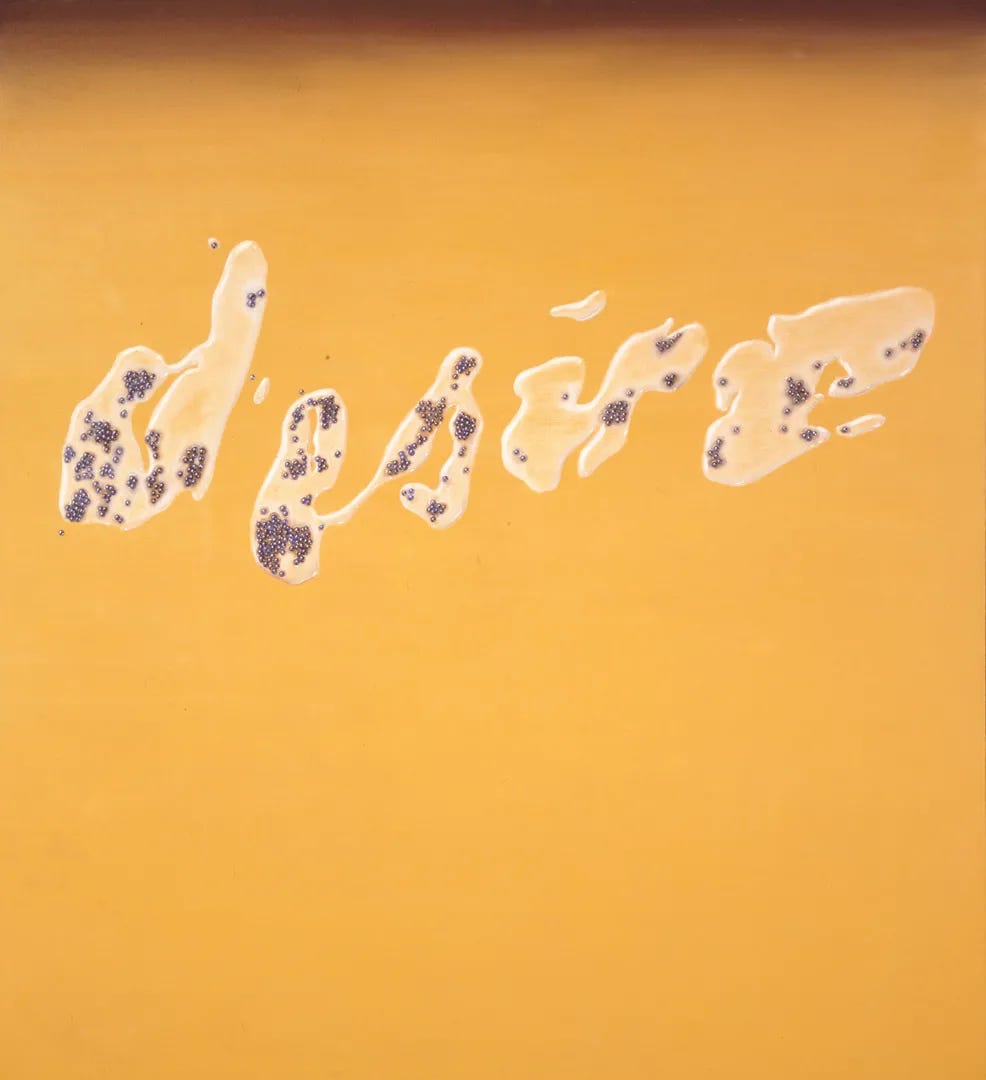Brain Food #841: The impossibility of wanting
Mimetic desire and wanting the want
Thoughts of the day
The present version of Thanksgiving is one of a day that asks us to be grateful for what is currently present in our lives, immediately followed by a day that shamelessly nudges us to want more. The leap is spectacular, representative of how often we humans tend to forget the promises we make to ourselves, often from one day to the next.
Gratitude as a practice serves to remind us that we have enough, and that we should not focus on having what we want, but on wanting what we have. But there might also be value in the right kind of wanting, as long as we develop an awareness of where our wants come from.
What are the origins of our wants? This is one of the themes of The Fountainhead by Ayn Rand, which touches upon the concept of mimetic desire, and wanting the wants of others:
“Listen to what is being preached today. Look at everyone around us. You’ve wondered why they suffer, why they seek happiness and never find it. If any man stopped and asked himself whether he’s ever held a truly personal desire, he’d find the answer. He’d see that all his wishes, his efforts, his dreams, his ambitions are motivated by other men. He’s not really struggling even for material wealth, but for the second-hander’s delusion - prestige. A stamp of approval, not his own. He can find no joy in the struggle and no joy when he has succeeded. He can’t say about a single thing: ‘This is what I wanted because I wanted it, not because it made my neighbors gape at me’. Then he wonders why he’s unhappy.”
Wanting is different from expecting, which is our minds anticipating how things should be. Instead, wanting is an act of longing. Often, if Jacques Lacan was right, true longing is for something obscure or impossible, something unattainable, and this lies at the very centre of our being:
“Desire, a function central to all human experience, is the desire for nothing nameable. And at the same time this desire lies at the origin of every variety of animation. If being were only what it is, there wouldn’t even be room to talk about it. Being comes into existence as an exact function of this lack.”
The Last Psychiatrist put it more colloquially:
“One of the great insights of psychoanalysis is that you never really want an object, you only want the wanting, which means the solution is to set your sights on an impossible ideal and work hard to reach it. You won’t. That’s not just okay, that’s the point. It’s ok if you fantasize about knowing kung fu if you then try to actually learn kung fu, eventually you will understand you can never really know kung fu, and then you will die. And it will have been worth it.”
When we fail to get what we want, we can turn to Deborah Levy’s words from Real Estate, and remember that much of being alive comes not from the acquisition but the desire of the thing:
“Yet my encounter with this rented house was a taunt, a provocation; it made me feel more alive. If I was full of desire for its ambience and grace, the fact that I did not have the means to buy it only accelerated my desire. Perhaps it was not the house but desire itself that made me feel more alive.”
Having one’s own wants can be a source of energy, propelling us forward. The moment we stop wanting is the moment we stop being.
Be thankful for still having things you want - as long as these wants are your own.
I write Brain Food out of my own desire and willingness to share what I find interesting and to inspire others, and help them see life in a different light. All of Brain Food is free, but if you would like to subscribe or pledge your support of my work by committing to a future paid subscription you can do so below:

